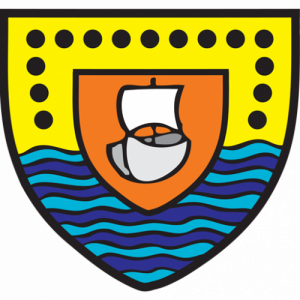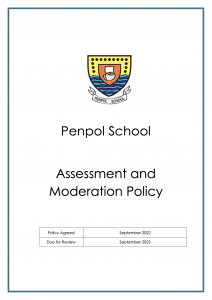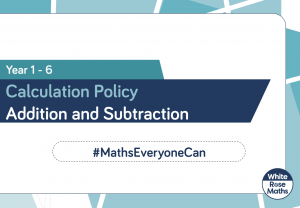
Curriculum Links

Assessment
at Penpol School
Why Do We Assess?
Assessment enables school staff and stakeholders to see what progress your child is making and provides information which assists to plan how to help pupils make further progress. Assessment is very important for tracking this progress, planning next steps, reporting and involving parents, children and young people in learning.
Assessment at Penpol
Assessment is integral to effective teaching and learning. Through internal assessment, such as observation, questioning, discussions and feedback, we can gather information about each pupil’s abilities, learning needs and performance, and use this information to adapt teaching and learning practices to meet a pupil’s individual needs. Via this continuous feedback mechanism, we can ensure that each pupil receives teaching specific to their needs, enabling them to reach their full potential.
We believe that assessment for learning should:
- Be at the heart of classroom practice.
- Focus on how pupils learn.
- Promote a commitment to learning goals.
- Provide pupils with constructive guidance to enable improvement.
- Develop pupils’ ability to self-assess, to enable them to become reflective self-learners.
- Recognise the achievements of all learners.
Assessment for learning is used to provide ongoing formative assessment, through the use of feedback marking and/or observations of pupils’ learning, against learning objectives and success criteria. This information is then used to assess progress towards meeting learning objectives, and to identify and set next step targets for each pupil. Formative assessment builds pupils’ “learning to learn” skills by emphasising the process of teaching and learning, and involving learners as partners in that process. It also builds pupils’ skills at peer-assessment and self- assessment, and helps them develop a range of effective learning strategies. Whole class marking is undertaken for reading, writing and maths and is now being rolled out to broader foundation subjects to provide rigour in assessment across the curriculum.
Summative assessments are any method of evaluation performed at the end of a unit or term, allowing staff to measure a pupils’ understanding against standardised criteria. It can result in the pupil receiving a determined grade or standard that tells the staff and pupils how well they are performing academically. Staff can also use these results to evaluate how successful their teaching methods were and see if they need to be adjusted next time they teach that unit. These are some of the range of summative assessments used in key phase groups.
- Early Years Foundation Stage
- Key Stage 1
- Key Stage 2
- Pupils joining the school will receive a baseline assessment early in the Autumn term following the DFE’s Reception Baseline Assessment guidance.
- Pupils will be assessed using the Early Years Statutory Framework which requires the Early Years Foundation Stage Profiles to be completed by the final term of the year in which a child reaches age 5, and no later than 30 June in that term.
- The EYFS profile is made up of an assessment of the child’s outcomes in relation to the 17 early learning goal (ELG) descriptors through seven areas of learning. These can be updated on our assessment system called Sonar.
- Children are defined as having reached a Good Level of Development (GLD) at the end of the EYFS if they have achieved at least the expected level for the ELGs in the prime areas of learning and the specific areas of mathematics and literacy.
- Parents/Carers can support evidence of assessments through information provided by you. Tapestry is an online platform for providing this.
- Further information on EYFS assessments can be found here – https://www.theschoolrun.com/what-early-years-foundation-stage-profile
- Pupils will be assessed termly in reading, writing, maths and science to evaluate their standard against national curriculum assessments. Sonar will be used to hold this data.
- Curriculum objectives will be assessed using Sonar Tracker in reading, writing, maths and science. Curriculum objectives and skills will be reviewed for all subjects on Curriculum Planners and whole class marking will also assess foundation subjects.
- Year 1 will undertake a statutory Phonics Screening Check in June each year. Those Y1 pupils who do not pass the threshold will get an opportunity to re-sit the test in Y2.
- Teachers will make statutory end of year assessments against national frameworks in reading, writing, maths and science at the end of Key Stage One (Y2).
- Statutory assessment tests (SATs) will also be undertaken for Y2 pupils in reading and maths. Spelling, punctuation and grammar tests are optional. Results of these tests are reported to parents/carers in the end of year reports. These will be non-statutory from 2023-24.
- Non-statutory tests are undertaken in Y1 in maths and SPaG at the end of the year and Y2 in February and June in reading and maths. Testbase is used to facilitate these tests.
- Pupils will be assessed termly in reading, writing, maths and science to evaluate their standard against national curriculum assessments. Sonar will be used to hold this data.
- Curriculum objectives will be assessed using Sonar Tracker in reading, writing, maths and science. Curriculum objectives and skills will be reviewed for all subjects on Curriculum Planners and whole class marking will also assess foundation subjects.
- Y4 will undertake a statutory Multiplication Tables Check in June each year. The purpose of the MTC is to determine whether pupils can recall their times tables fluently, which is essential for future success in mathematics. It helps identify pupils who have not yet mastered their times tables, so that additional support can be provided.
- Teachers will make statutory end of year assessments against national frameworks in reading, writing, maths and science at the end of Key Stage Two (Y6).
- Statutory assessment tests (SATs) will also be undertaken for Y6 pupils in Reading, GPS (Grammar, Punctuation and Spelling) and Maths. Results of these tests are reported to parents/carers in the end of year reports.
- Non-statutory tests are undertaken in Y3-Y6 in maths, reading and GPS in February (mid-year tests) and in Y3-Y5 in June (end of year tests). Testbase is used to facilitate these tests.
Related Links
Assessment in EYFS: Early Learning Goals
The Early Years Foundation Stage is separated into seven areas of development. There are three ‘Prime Areas‘ and four ‘Specific Areas‘. The Prime areas are fundamental skills and work together to support development in all other areas of development.
The Early Learning Goals establish expectations for children’s learning and development by the end of the EYFS. We support all children in working towards these goals, but there is no expectation that all children should achieve them. We use our professional judgement to make these assessments, based on the knowledge and understanding of what the child knows, understands, and can do.
The EYFS Profile is a statutory assessment of children’s development at the end of the early years foundation stage (known as a summative assessment). Day-to-day informal checking of what children have learnt will inform teaching and learning on an ongoing basis throughout the final year of the EYFS. This will include identifying areas where children may be at risk of falling behind, so that we can provide rapid, effective support.
The Early Learning Goals are what is assessed at the end of the reception year but are not used as a curriculum. The EYFS profile is not used for ongoing assessment or for entry-level assessment for early years settings or reception classes.
We use the Reception Baseline Assessment which is an activity-based assessment of pupils starting point in communication, language and literacy and mathematics. It provides a snapshot of where pupils are when they arrive at school.
Prime Areas of Development
- Personal, Social and Emotional Development
- Communication and Language
- Physical Development
★ Self-Regulation
Children at the expected level of development will:
- Show an understanding of their own feelings and those of others, and begin to regulate their behaviour accordingly;
- Set and work towards simple goals, being able to wait for what they want and control their immediate impulses when appropriate;
- Give focused attention to what the teacher says, responding appropriately even when engaged in activity, and show an ability to follow instructions involving several ideas or actions.
★ Managing Self
Children at the expected level of development will:
- Be confident to try new activities and show independence, resilience and perseverance in the face of challenge;
- Explain the reasons for rules, know right from wrong and try to behave accordingly;
- Manage their own basic hygiene and personal needs, including dressing, going to the toilet and understanding the importance of healthy food choices.
★ Building Relationships
Children at the expected level of development will:
- Work and play cooperatively and take turns with others;
- Form positive attachments to adults and friendships with peers;
- Show sensitivity to their own and to others’ needs.
★ Listening, Attention and Understanding
Children at the expected level of development will:
- Listen attentively and respond to what they hear with relevant questions, comments and actions when being read to and during whole class discussions and small group interactions;
- Make comments about what they have heard and ask questions to clarify their understanding;
- Hold conversation when engaged in back-and-forth exchanges with their teacher and peers.
★ Speaking
Children at the expected level of development will:
- Participate in small group, class and one-to-one discussions, offering their own ideas, using recently introduced vocabulary;
- Offer explanations for why things might happen, making use of recently introduced vocabulary from stories, non-fiction, rhymes and poems when appropriate;
- Express their ideas and feelings about their experiences using full sentences, including use of past, present and future tenses and making use of conjunctions, with modelling and support from their teacher.
★ Gross Motor Skills
Children at the expected level of development will:
- Negotiate space and obstacles safely, with consideration for themselves and others;
- Demonstrate strength, balance and coordination when playing;
- Move energetically, such as running, jumping, dancing, hopping, skipping and climbing.
★ Fine Motor Skills
Children at the expected level of development will:
- Hold a pencil effectively in preparation for fluent writing – using the tripod grip in almost all cases;
- Use a range of small tools, including scissors, paint brushes and cutlery;
- Begin to show accuracy and care when drawing.
Specific Areas of Development
- Literacy
- Mathematics
- Understanding the World
- Expressive Arts and Design
☆ Comprehension
Children at the expected level of development will:
- Demonstrate understanding of what has been read to them by retelling stories and narratives using their own words and recently introduced vocabulary;
- Anticipate – where appropriate – key events in stories;
- Use and understand recently introduced vocabulary during discussions about stories, non-fiction, rhymes and poems and during role-play.
☆ Word Reading
Children at the expected level of development will:
- Say a sound for each letter in the alphabet and at least 10 digraphs;
- Read words consistent with their phonic knowledge by sound-blending;
- Read aloud simple sentences and books that are consistent with their phonic knowledge, including some common exception words.
☆ Writing
Children at the expected level of development will:
- Write recognisable letters, most of which are correctly formed;
- Spell words by identifying sounds in them and representing the sounds with a letter or letters;
- Write simple phrases and sentences that can be read by others.
☆ Number
Children at the expected level of development will:
- Have a deep understanding of number to 10, including the composition of each number;
- Subitise (recognise quantities without counting) up to 5;
- Automatically recall (without reference to rhymes, counting or other aids) number bonds up to 5 (including subtraction facts) and some number bonds to 10, including double facts.
☆ Numerical Patterns
Children at the expected level of development will:
- Verbally count beyond 20, recognising the pattern of the counting system;
- Compare quantities up to 10 in different contexts, recognising when one quantity is greater than, less than or the same as the other quantity;
- Explore and represent patterns within numbers up to 10, including evens and odds, double facts and how quantities can be distributed equally.
☆ Past and Present
Children at the expected level of development will:
- Talk about the lives of the people around them and their roles in society;
- Know some similarities and differences between things in the past and now, drawing on their experiences and what has been read in class;
- Understand the past through settings, characters and events encountered in books read in class and storytelling.
☆ People, Culture and Communities
Children at the expected level of development will:
- Describe their immediate environment using knowledge from observation, discussion, stories, non-fiction texts and maps;
- Know some similarities and differences between different religious and cultural communities in this country, drawing on their experiences and what has been read in class;
- Explain some similarities and differences between life in this country and life in other countries, drawing on knowledge from stories, non-fiction texts and – when appropriate – maps.
☆ The Natural World
Children at the expected level of development will:
- Explore the natural world around them, making observations and drawing pictures of animals and plants;
- Know some similarities and differences between the natural world around them and contrasting environments, drawing on their experiences and what has been read in class;
- Understand some important processes and changes in the natural world around them, including the seasons and changing states of matter.
☆ Creating with Materials
Children at the expected level of development will:
- Safely use and explore a variety of materials, tools and techniques, experimenting with colour, design, texture, form and function;
- Share their creations, explaining the process they have used;
- Make use of props and materials when role playing characters in narratives and stories.
☆ Being Imaginative and Expressive
Children at the expected level of development will:
- Invent, adapt and recount narratives and stories with peers and their teacher;
- Sing a range of well-known nursery rhymes and songs;
- Perform songs, rhymes, poems and stories with others, and – when appropriate – try to move in time with music.
Related Documents
This page was last updated:
10th October 2022




